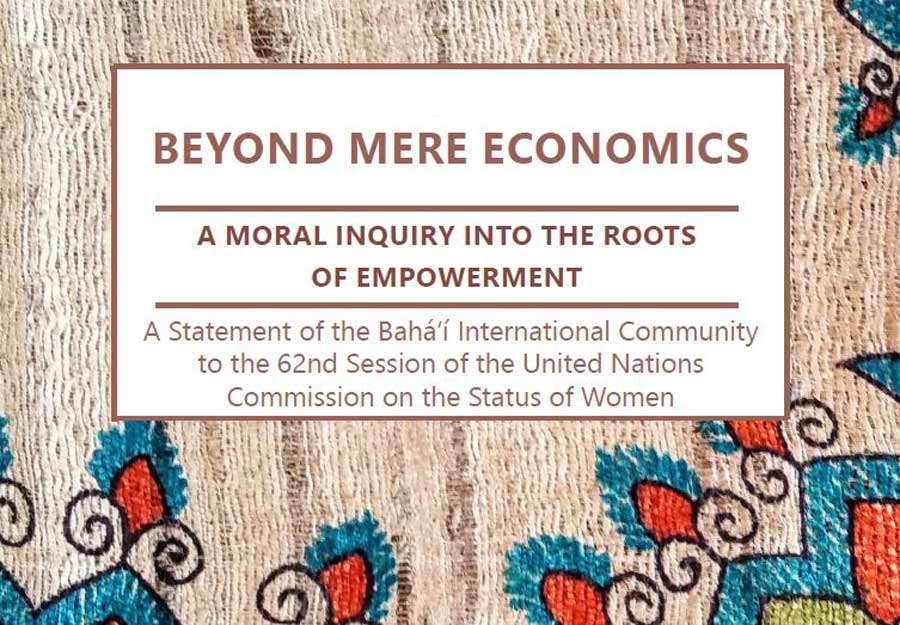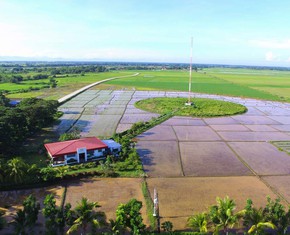It is time for a more expansive conception of women’s empowerment, asserts the Baha’i International Community in a new statement.
The discourse on women’s empowerment must move beyond mere concern for the participation of women in the economic life of society, as important as this is, and look at releasing the vast potentialities of women for the progress of the world.
The Baha’i teachings say:
Women have astonishing capacities. – Abdu’l-Baha, quoted in A Compilation on Women, pg. 37.
The systematic effort to reach out to a population and foster its participation in the process of capacity building accelerates markedly when members of that population are themselves in the vanguard of such an effort. – The Universal House of Justice, 29 December 2015, to the Conference of the Continental Boards of Counsellors.
“The path from doubt to self-confidence, from silence to voice, from passivity to action, cannot be understood only in terms of entering the labor market or integrating into a global production chain of one kind or another,” the statement says. “The development of capacity must concern itself with all aspects of human existence—economic as well as social, intellectual, cultural, spiritual, and moral.”
Titled “Beyond Mere Economics: A Moral Inquiry into the Roots of Empowerment,” the statement was prepared for the UN’s 62nd annual Commission on the Status of Women (CSW), which runs from 12–23 March and comes on the heels of worldwide celebrations of International Women’s Day on 8 March.

The Baha’i International Community has released a statement for the United Nation’s Commission on the Status of Women (CSW), which begins today on 12 March. This image is from last year’s CSW, which also featured several noteworthy contributions from the BIC.
This year’s CSW focuses on the empowerment of rural women. Highlighting this theme, the BIC statement draws on the insights of women in different settings around the world who are engaged in social transformation in their communities and societies.
Among its main recommendations, the statement proposes that educational systems need to be remodeled to release the full potential of women and assist them to develop “capabilities for service to the community and society.” Drawing on the experience of the worldwide Baha’i community, it proposes that as women become empowered and contribute to the transformation of their communities at many different levels, they become more visible, challenging pre-existing gender dichotomies and “inherited assumptions about social patterns and the roles played by women and men.”
“There are many examples around the world of instances in which women and men are working shoulder to shoulder as mutually respected partners,” says the statement.
Looking at the advancement of women in the broader context of the advancement of society as a whole, the statement explores a number of important questions.
“One issue before the Commission on the Status of Women, then, is replication of what is working. How can a culture in which women and men jointly and joyfully contribute to the common good be built in society after society,” asks the BIC’s statement.
“What is possible to achieve in local communities—not just in a few pilot programs or for the duration of a funding cycle but indefinitely into the future and all around the world?”
Examining such questions and their solutions will contribute to a global process of learning which will enable humanity to advance collectively on this issue, asserts the statement.
















Comments
Sign in or create an account
Continue with Googleor